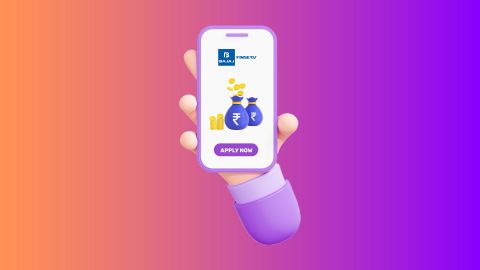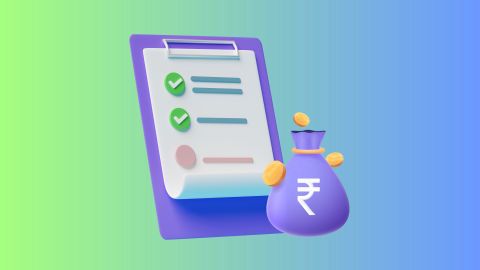Personal loans provide financial flexibility, but understanding interest rates is crucial for making informed borrowing decisions. The personal loan minimum interest rate varies across lenders and depends on factors like credit score, income, and loan tenure. Borrowers should compare rates and choose wisely to secure affordable financing.
In India, the minimum rate of interest for personal loan in India is influenced by RBI guidelines, market trends, and borrower profiles. By maintaining a strong credit score and stable income, applicants can access lower interest rates, reducing overall loan costs.
What is the personal loan interest rate?
A personal loan interest rate is the percentage charged by a lender for borrowing a sum of money on a personal loan. This rate represents the cost of borrowing and is applied to the principal amount. Personal loan interest rates can be fixed or variable. A fixed rate remains constant throughout the loan term, offering predictable monthly payments, while a variable rate may change based on market conditions. Lenders determine these rates based on factors such as the borrower's credit score, financial history, and the loan amount. A lower interest rate indicates lower overall borrowing costs, making it crucial for borrowers to compare rates before choosing a loan.
Minimum interest rate for personal loan in India
In India, the minimum rate of interest for personal loan in India typically starts from 10% per annum. However, rates can vary based on factors such as the borrower's credit score, income stability, and the lending institution. For those with excellent credit and a strong financial profile, rates may be lower. It’s essential to compare offers from different lenders, including banks and non-banking financial companies (NBFCs), to find the best rate. Additionally, opting for a secured loan or having a co-signer can potentially help in securing a lower interest rate.
Which type of interest rate is best for your personal loan?
Choosing the right type of interest rate for your personal loan can significantly impact your financial planning. Here’s a comparison of floating and fixed interest rates:
Floating interest rates: These rates fluctuate with market conditions and are often lower than fixed rates initially. They can be advantageous if market rates decrease, potentially lowering your overall interest payments. However, they also carry the risk of rising rates, which could increase your monthly payments and total loan cost. Floating rates offer flexibility but can lead to uncertainty in your repayment schedule.
Fixed interest rates: Fixed rates remain constant throughout the loan term, providing stability and predictable payments. This can be beneficial for budgeting as you’ll always know your exact repayment amount. Fixed rates are ideal if you prefer stability and want to avoid the risk of rate increases. However, they might start higher than floating rates and could result in higher overall costs if market rates decrease.
Choosing between these options depends on your risk tolerance and financial situation. If you value stability, a fixed rate might be best. If you’re comfortable with potential fluctuations and seek lower initial costs, a floating rate could be more advantageous.
Factors affecting personal loan interest rates
Several factors influence the interest rates on personal loans. Understanding these elements can help secure better terms. If you are planning to take a loan, consider your credit score, income, and existing liabilities before you apply for a personal loan.
- Credit score: A high credit score signifies financial reliability and can lead to lower interest rates. Lenders view you as a lower risk, thus potentially offering better terms.
- Income stability: Consistent income and job stability are important. Lenders prefer borrowers with a reliable income source, which can positively influence the interest rates charged.
- Loan amount and tenure: Larger loan amounts or longer repayment periods might come with higher rates. Shorter tenures typically attract lower rates.
- Eligibility criteria for personal loan: Meeting the specific eligibility criteria for personal loan is crucial. Factors like your credit history, income, and existing debt play a role. Use the personal loan eligibility calculator to assess your eligibility and understand how it impacts your interest rates.
Your interest rates will depend on these factors, so improving your credit score and financial stability can help you secure more favorable terms.
Additional read: Factors affecting personal Loan amount
8 tips to get a personal loan on minimum interest rate
Securing a personal loan with the lowest interest rate can save you a significant amount of money over time. Here are eight tips to help you get the best deal:
- Understand your credit score: Your credit score is a crucial factor in determining your loan interest rate. Check your credit report to understand where you stand. Scores above 700 typically qualify for better rates, while lower scores might result in higher rates or loan rejection.
- Improve your credit score: If your credit score is less than stellar, take steps to improve it before applying. Pay off existing debts, make all payments on time, and reduce credit card balances to boost your score.
- Demonstrate stable income: Lenders prefer borrowers with a steady income as it suggests a lower risk of default. Provide proof of your income through pay stubs, tax returns, or bank statements to strengthen your loan application.
- Compare lenders: Different lenders offer varying interest rates and terms. Compare offers from banks, credit unions, and online lenders. A little research can help you find the most competitive rate available.
- Consider secured loans: If you're open to offering collateral, a secured loan-backed by an asset like a car or savings account-often comes with a lower interest rate compared to unsecured loans.
- Shop around for the best APR: The Annual Percentage Rate (APR) reflects the total cost of the loan, including interest and fees. Aim to get quotes from multiple lenders to find the lowest APR.
- Consider a co-signer: A co-signer with a strong credit history can help secure a lower interest rate by adding extra assurance to the lender that the loan will be repaid.
- Negotiate and review terms: Don't hesitate to negotiate with lenders for better rates or terms. Carefully review the loan agreement to ensure there are no hidden fees or unfavorable conditions.
By following these tips, you can enhance your chances of securing a personal loan with a minimum interest rate, ultimately saving you money in the long run.
Conclusion
In conclusion, securing a personal loan at a favourable interest rate requires a proactive approach. By maintaining a strong credit profile, comparing lenders, and negotiating terms, borrowers can enhance their chances of obtaining lower interest rates. These efforts contribute to a more cost-effective borrowing experience, aligning with prudent financial management.
Bajaj Finance offers personal loans at competitive interest rates. You can also use the Bajaj Finserv Personal Loan EMI Calculator to determine the total interest payable. This calculator simply asks you to select your preferred loan amount, interest rate, and tenure.




